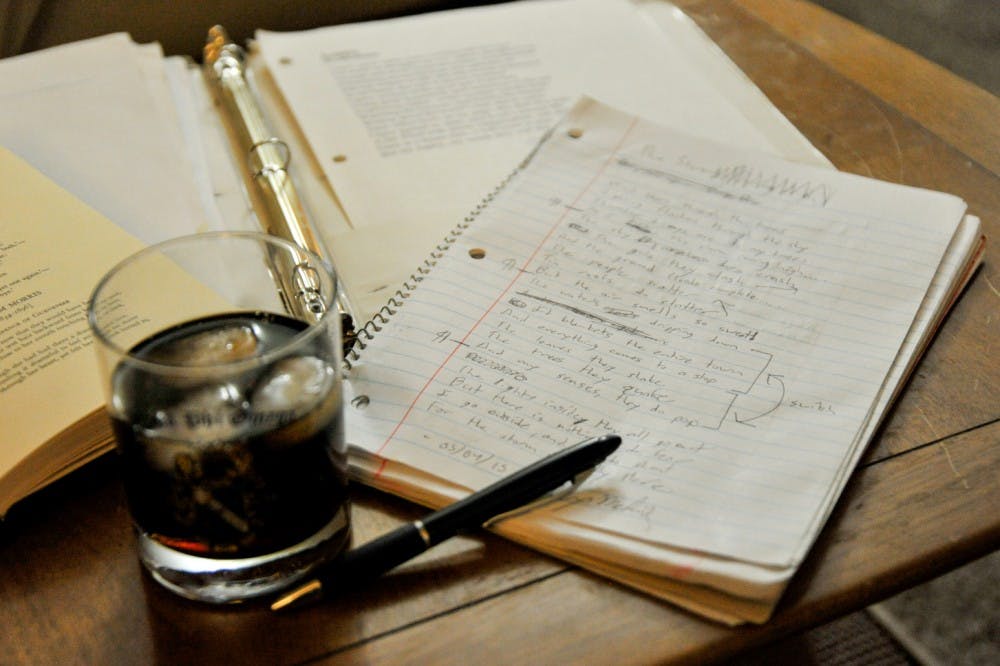William Shakespeare, Edgar Allen Poe and Emily Dickinson are people who may come to mind when we think of poetry. I used to believe poetry was a dead art, something that we were not all capable of. That is, until I was gifted with a diary when I was ten years old.
Through sadness and anger, I wrote a series of words that were not just a story, they made poetry. As I got older and faced trials in my life, the only thing I had was a pen and paper and a story to write. When traumatic events happen to us, we tend to repress our emotions. We often shy away from discussing how we feel because we think it’s embarrassing, or our own fault. Many times, we do not think we are capable of writing poetry or see the point of it.
Through my own experience editing and writing endlessly, I have found that once we write down our innermost thoughts, they become legitimate. When we ignore how we feel, we delegitimize how we feel, as though our emotions are not important, or are weak. I found my legitimacy through reading the lines of Warsan Shire’s For Women Who Are Difficult To Love: “You are terrifying and strange and beautiful, someone not everyone knows how to love.” During high school it was particularly difficult for me to come to terms with who I am, I was insecure about being visibly different than most of the kids at my school. This poem and many of her writings helped me realize that not everyone will appreciate you, and that's okay.
This does not mean that everyone should publish poetry right away. You should try it because it is a form of healing for everyone who reads and everyone who writes. To know that someone else feels the same way you do is validating and calming. This is not limited to the classical writings of Shakespeare or the light-hearted form of Dr. Seuss. Poetry is everywhere if we look hard enough.
Tupac Shakur was one of my favorite poets, he wrote an entire poetry book as a side project. In his book "The Rose That Grew From Concrete" he writes in the most simplistic form with basic rhyming and raw emotion. However, it was his honesty that placed his poetry on par with many classical poetry greats in history. He writes in his poem "The Rose That Grew From Concrete:"
"Did you hear about the rose that grew
from a crack in the concrete?
Proving nature's law is wrong it
learned to walk with out having feet.
Funny it seems, but by keeping its dreams,
it learned to breathe fresh air.
Long live the rose that grew from concrete
when no one else ever cared."
Tupac likens himself to the rose, and despite all the criticism he received for being a trouble-maker, he forces us to consider his circumstances. While it is his own story, it provides a lot of context for others who were not able to communicate this struggle.
Others like Erykah Badu, Common, Talib Kweli or Mos Def are often regarded as rappers and not poets. We fail to see the versatility that poetry possesses by slapping a label on those who do not write like Robert Frost. This highly discourages those who are not very good at writing, who do not possess an extensive vocabulary and do not have the tools or resources to attend classes to write poetry. My advice is to consistently write how you feel from the week or day, and you will realize it's poetry over time.
Emotion is carried regardless of how large of a word you use. What you’re going through and how you explain it is more beautiful than being grammatically correct, and with time and practice that will come slowly. Poetry is art, and art is about pushing the envelope, questioning the rules and putting our all into it. We must encourage creativity and above all believe that all of us are capable of it, because the more emotionally conscious and tender we are, the more we can help and heal ourselves and others.
Related Links:
ASU professor Rosemarie Dombrowski takes poetry outside of the classroom
Second annual Rise! Poetry Event touches on themes like Black Lives Matter, PTSD, intersectionality
Reach the columnist at anshakoo@asu.edu or follow @ashak21 on Twitter.
Like The State Press on Facebook and follow @statepress on Twitter.
Editor’s note: The opinions presented in this column are the author’s and do not imply any endorsement from The State Press or its editors.
Want to join the conversation? Send an email to opiniondesk.statepress@gmail.com. Keep letters under 300 words and be sure to include your university affiliation. Anonymity will not be granted.




